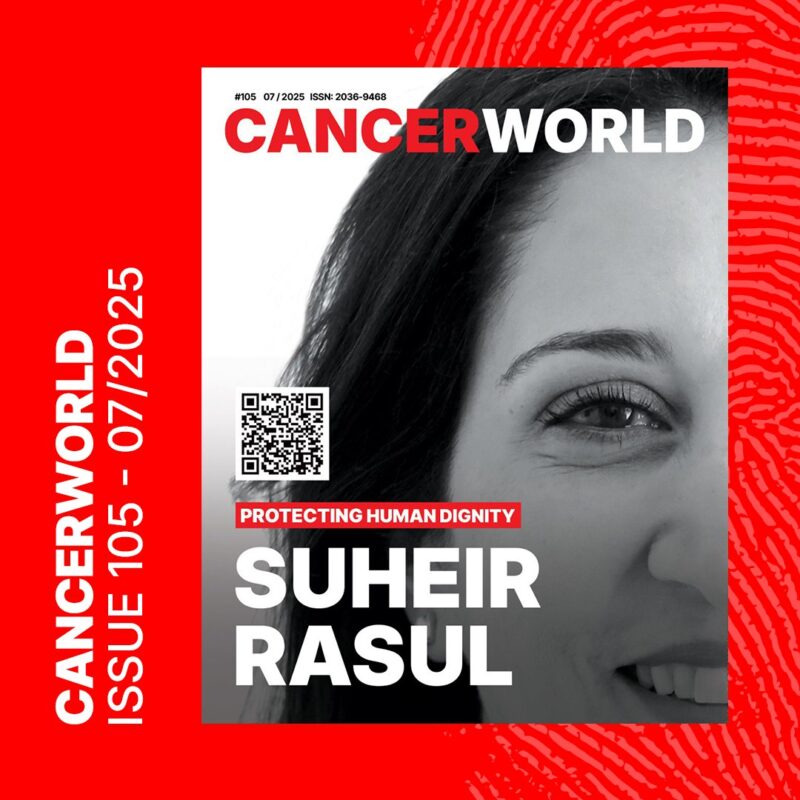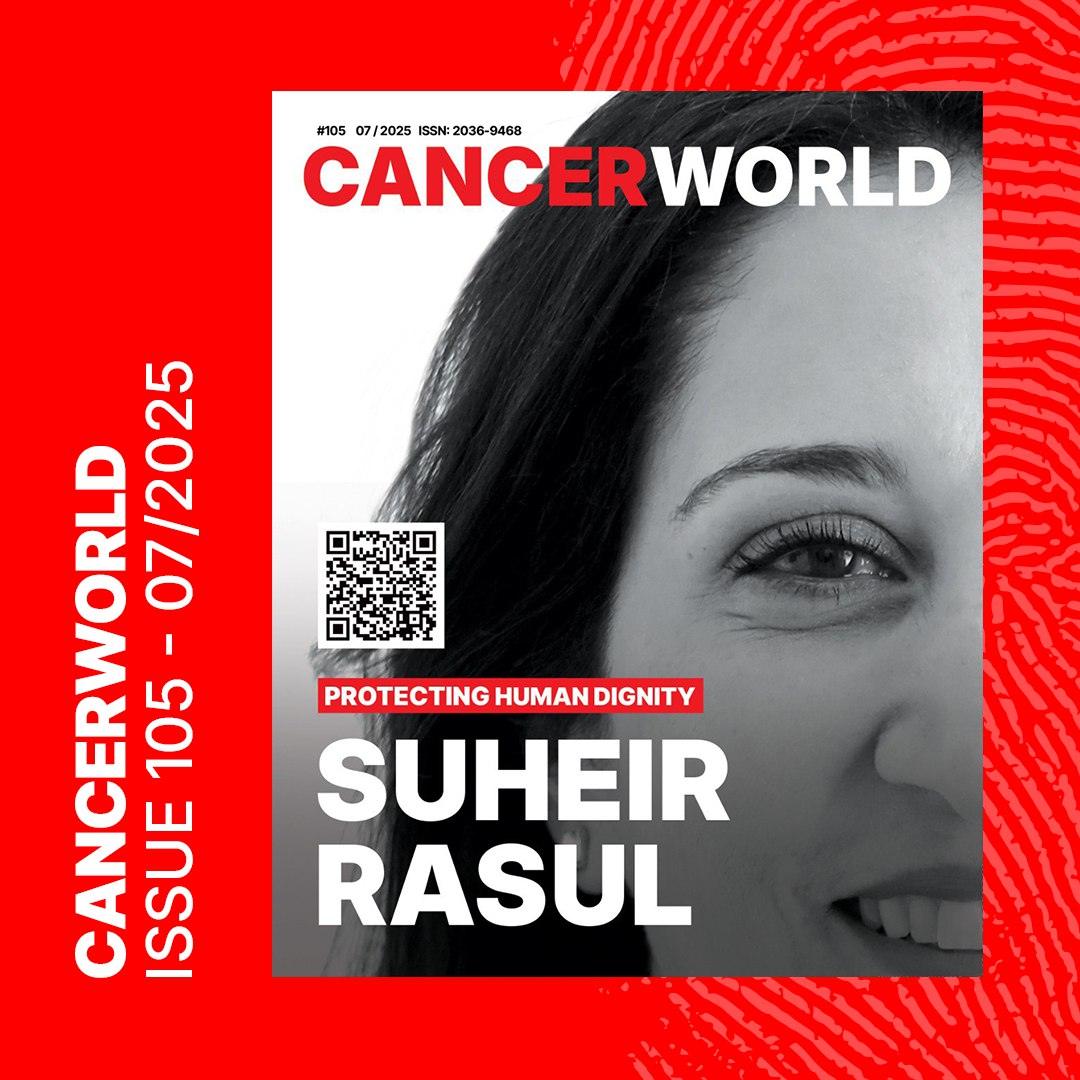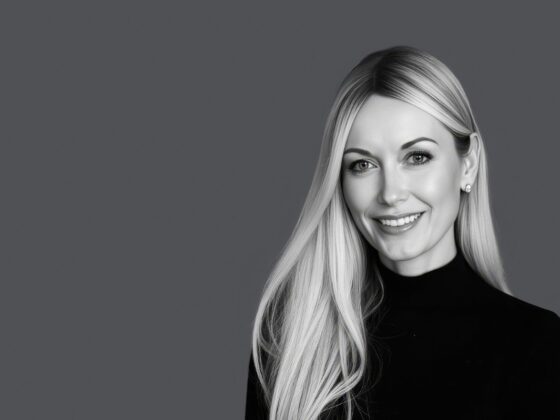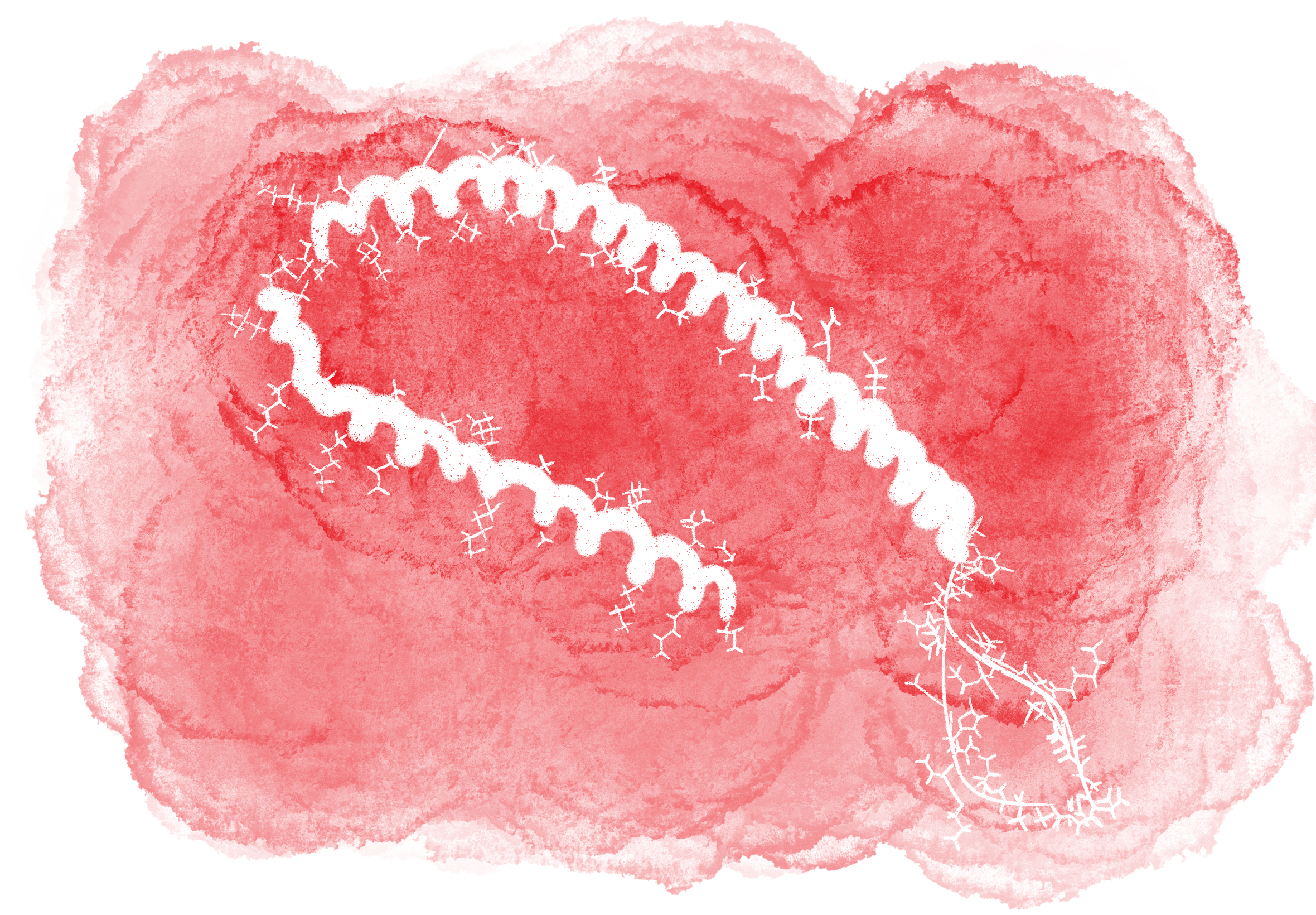When Suheir Rasul talks about her journey, you don’t hear a linear career path—you hear a story of transformation, resilience, and service. Today, as Senior Vice President of ALSAC Global, the fundraising and awareness organization of St. Jude Children’s Research Hospital, she leads, with St. Jude, global efforts to improve childhood cancer outcomes around the world. But her journey started far from global health.
Born and raised in Ohio, Suheir always knew she wanted to be a journalist. “My mom said that when I was six, I told a local reporter I was going to be a journalist,” she recalls. And so, she did. Her early career was deeply rooted in U.S. media, working as an executive producer and managing editor in broadcast television. She eventually moved to Memphis, Tennessee, where her parents had relocated, and continued her media work for 15 years.
After becoming a mother, Suheir shifted gears—briefly—as a broadcast media adjunct professor at the University of Memphis. But the career that once inspired her now felt lacking in purpose. “I completed my master’s in international communications and then tried being a stay-at-home mom. That lasted less than a year,” she laughs.
It was the aftermath of 9/11 that sparked a deeper calling. Her son came home asking questions about his Arabic name and identity. In a less diverse part of the U.S., Suheir began to feel the weight of being Arab in America. “I realized I needed to raise my children differently. I wanted them to have a deeper understanding of the world and to be rooted in their heritage,” she says. “I started imagining a life and career in the Middle East.”
A New Chapter: From Memphis to Ramallah
What followed was unexpected. A call came from the nonprofit Search for Common Ground, the largest global peacebuilding organization working in conflict zones. “They said they needed someone with Arabic media background, and a willingness to live in Palestine or Israel. I was all three.”
Despite having no direct conflict resolution experience, she got the job on the spot. “I was shocked and said, ‘Wait, are you sure you want me? I don’t know anything about conflict resolution, and I’ve never lived in Palestine. And, I have three kids under the age of 10.’ But they needed someone by December. It was October. And they wanted me.”
She moved alone first, to Ramallah, where her father’s family had lived for generations. Life in the West Bank was a stark contrast. “I didn’t even know how to turn on the hot water or use the electricity properly. It’s much different in America,” she says. Her mother, also from Palestine, was very proud of her first-born child, but also concerned that it would be too difficult for her to live in such different conditions. “She asked me if I was sure I could do this alone with three small children. I quickly answered her ‘yes, I absolutely can’, even though I had no idea what I was getting myself into,” Suheir says. But she adapted to the new way of life, and six months later, returned to the U.S. to bring her three children back with her to start a new journey.
For the next decade, Suheir served as Country Director for Search for Common Ground. Her work spanned everything from peace initiatives with diplomats to launching the first independent Palestinian satellite TV station. Her office was in East Jerusalem, and her home in Ramallah—crossing Israeli checkpoints daily became routine. Her work extended even into ministries of health, improving laboratory systems for infectious diseases in the region.
But after ten years, her work visa was not renewed. Forced to return to the U.S., she chose Memphis once again. “I didn’t plan to go back to Memphis, but my parents were there.” She assumed it would be temporary.
ALSAC and the Global Childhood Cancer Mission
Then came a call from ALSAC, the American Lebanese Syrian Associated Charities, the fundraising and awareness organization for St. Jude. She began by leading the Issues Management team and learned to adapt to a different sort of crisis. A few years later, she became the Senior Vice President of ALSAC Global, leading ALSAC’s worldwide foundation engagement efforts.
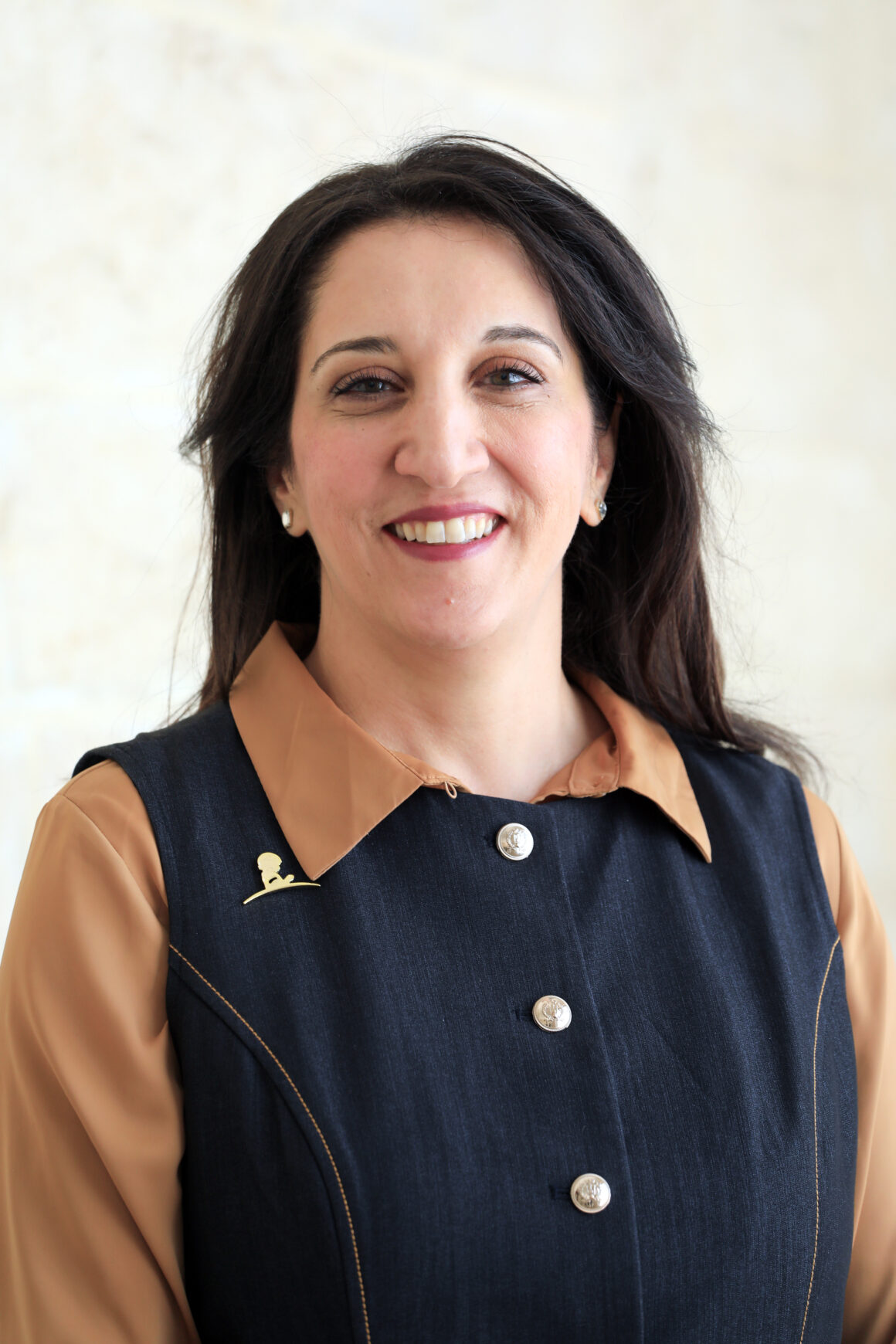
Today, she works hand in hand with the St. Jude Global team, tackling the toughest inequities in childhood cancer.
“We know how to save these children. The treatments exist. But in low- and middle-income countries, fewer than 30% survive, compared to over 80% in the U.S. That’s unacceptable. Danny Thomas, the founder of ALSAC and St. Jude, said ‘No child should die in the dawn of life,’ and he meant anywhere.”
Having lived in the West Bank and traveled to many countries in the region, Suheir knew about health disparities. “But it’s different when you see it firsthand. You realize the problem isn’t lack of answers—it’s lack of access.”
Conflict zones add a cruel layer. “How do you tell a parent that treatment exists, but you can’t reach it, just because of where you were born? How do you ask them to hold on to hope when they are literally fighting a war and cancer?”
But amid despair, she finds inspiration. “The people we work with, our partners who live in very difficult conditions around the world—they never give up. They don’t say it’s impossible, they ask: ‘What more can we do?’”
A Return Home That Didn’t Feel Like Home
When asked about the most difficult point in her career, Suheir answers without hesitation: “Returning to the U.S. was the hardest. Reintegrating into American life after ten years in the Middle East—it was a ‘reverse’ cultural shock- if there is such a thing. Professionally and personally, it felt unnatural. There was still so much work to be done in the world.”
Despite being back in familiar surroundings, she felt disconnected. “I would’ve never guessed returning home would be harder than leaving in the first place.”
The Challenge and the Charge
Her role now demands navigating complex, layered crises—children with cancer, limited access to resources and ongoing conflicts. “It’s devastating when you truly see the disparities,” she says. “But that is why our mission is to increase survival rates of pediatric cancer and other catastrophic diseases worldwide. We need to ensure hope endures. That one day, regardless of where they live, children receive the treatment they deserve. That is just basic human dignity.”
She remains hopeful because of the resilience of their foundation partners in the St. Jude Global Alliance. “They ask for more training, more knowledge, more tools to fundraise. They are relentless. And because of that, and every child still without access, we must keep going until we reach every corner of the world.”
The Medical Community’s Voice in a Turbulent World
With global conflict comes many children lost. Suheir believes the medical community has a critical role to play—not only in care, but in advocacy.
“The medical community can be a very powerful, objective voice—she says. “Health professionals often see their job as saving or treating lives, and that’s, of course, essential. But if you view yourselves more broadly, we have the potential to send a powerful, credible message: that these conflicts are not inevitable, that death and suffering from man-made crises must stop.”
She emphasizes that the credibility of the health sector—grounded in a mission to save lives—makes its voice uniquely powerful. “If we unify and stand strong, I believe we can trigger a ripple effect around the world. And that is what I hope the St. Jude Global Alliance and all our partners can do.”
Still, she acknowledges that advocacy isn’t inherently part of medical training. “Communicators and marketers use their voices every day. But for health workers, speaking out doesn’t always feel like part of the job. I believe we need to change that.”
She adds, “Times have changed. The way people consume information has changed. Social media has redefined influence. So, we must adapt and rethink how we engage and raise our collective voice for children everywhere.”
Advice for the Next Generation of Global Health Leaders
Suheir’s message to young professionals entering the global health field is direct and passionate:
“It’s one of the most noble causes you can pursue. Whatever your role—whether you’re a fundraiser, communicator, or clinician—this work is about fighting for equity and quality of life across the world. What could be more meaningful than that?”
She also gives a realistic warning: “Be ready to work hard. Health systems are often built in ways that perpetuate inequity. Changing that means going up against institutional, systemic forces. It’s not a 9-to-5 job. Be ready to fail. And be ready to pull yourself up and continue because failure is not an option for our children.”
Still, she urges them forward: “If you’re serious about making a difference in global health, then do it. Don’t wait for someone else to lead. With the uncertainty of the world today, the next generation must do better than we did.”
ALSAC Global: Building Local Sustainability Worldwide
On the global front, Suheir explains how ALSAC Global is supporting the St. Jude Global mission through education and resource mobilization within the countries:
“It takes resources—money, infrastructure, expertise—to truly save children around the world. That’s where ALSAC Global comes in,” she explains. “Today, St Jude Children’s Research Hospital is the largest health charity in the world and the most trusted nonprofit in the U.S.“
That success is now being leveraged globally. While St. Jude Global supports research and medical capacity-building in various countries, ALSAC Global helps local charities and non-profits in those same countries build fundraising capacity to sustain pediatric cancer care in their countries.
“It’s about replicating the success of ALSAC. In every country, we train local organizations on how to fundraise, tell their story, and build donor trust,” she says. “The funds raised by our partners stay in these countries for the children. We share our fundraising knowledge freely with our St. Jude Global Alliance partners, and the results have been remarkable.”
She gives a vivid example from Zimbabwe: “They used to raise $20,000 at most at an event. After just a year of ALSAC training, they raised $220,000 at that same event. Eventually, after one-on-one coaching by our experts, they raised $1 million and have now built their first housing facility for children with cancer, despite the country’s 600% inflation.”
Even in conflict zones like Syria, Suheir sees impact. “Despite the bombings, the economic sanctions, and political turmoil, they raised enough to purchase their first retinoblastoma treatment device, so children no longer need to travel to Lebanon for treatment. It’s transformative.”
She stresses why this work matters: “You can plan on building all the hospitals you want and training medical staff, but without sustainable financial resources, it’s not viable. This model helps communities stand on their own and grow from within. The point is to help the health systems improve from the ground up. We are not a donor organization that parachutes in for a project and leaves. We are there working with the medical community, the governments and the local foundations until children with cancer and other catastrophic diseases have a fighting chance.”
Humanity First: The Power of Storytelling
Suheir’s background in media remains central to her approach. She recalls producing documentaries that spotlight humanity above politics.
One such film documented how Palestinian firefighters crossed into Israel to help extinguish the devastatingCarmel wildfires—despite the conflict. “We wanted to show that humanity always comes first, even if you are under occupation,” she says. “When you focus on how you would want to be treated, it’s easy. Humanity should never be political.
She believes this same ethos drives her work at ALSAC. “Whether in health, media, or conflict resolution, my purpose is the same—protecting human dignity.”
“Humanity must come first and always prevail even in the worst times,” Suheir says. “That is why the St. Jude Global mission continues to shine a light on the children still living in darkness. It is in our DNA that, regardless of religion, race, or economic status, equity is a must. And St. Jude stands by that value. I am honored to be part of an organization that has evacuated children from Gaza and other conflict zones to continue cancer treatment because every child everywhere deserves a chance at life.”
Books That Shaped Her Perspective
When asked which books had the most impact on her, Suheir is quick to cite one author: “Edward Said. If you’ve never read his work, you must. As a Palestinian, his writings formed the foundation of my understanding. One quote in particular has stuck with me. He wrote, ‘Humanism is the only- I would go as far as saying the final-resistance we have against inhuman practices and injustice.’ ”
The Driving Force Behind Her Purpose
Reflecting on her journey—from Ohio to Ramallah to Memphis—Suheir admits she never set out to take on the world’s hardest jobs.
“I don’t go looking for difficult careers. But I think these careers found me. I didn’t know anything about conflict resolution or the nonprofit sector until Search for Common Ground approached me. That work changed my life.”
She attributes much of it to faith and fate. “There’s a divine intervention at work here. I believe God put me on this path to reach these places. I didn’t apply to ALSAC either—it came through a chain of connections. I wasn’t even planning to return to Memphis. But it fits. This work is aligned with who I am.”
She calls herself a risk-taker with a deep drive for justice. “Risk multiplied by humanity—that’s the equation that leads me.”
The Next Challenge: A Life Mission for Health Equity
What comes next?
“Surviving all this travel!” she jokes, before turning serious. “The next challenge isn’t a new project—it’s to continue the movement of fighting for global health equity. We focus on pediatric cancer, but the ripple effects will hopefully transform entire health systems. And to do that, there needs to be authentic leadership. I believe effective leadership comes only with true collaboration, and that is how we work around the world.
She views this as a lifelong commitment: “This isn’t a two-year or ten-year goal. This is a purpose- a passion. To keep going no matter the emotional toll, the conflict, the inequity—until every child everywhere has access to the care they deserve. I do believe the impossible is possible when we work together because I have seen it here at St. Jude. I often say the greatest gift to humanity by Arabs was the creation of St. Jude Children’s Research Hospital.”
Suheir Rasul’s life story is not just about personal reinvention—it’s about purpose-driven leadership in places where hope is hardest to find. From checkpoint crossings to global cancer advocacy, she continues to fight for a world where every child has a chance to survive.

